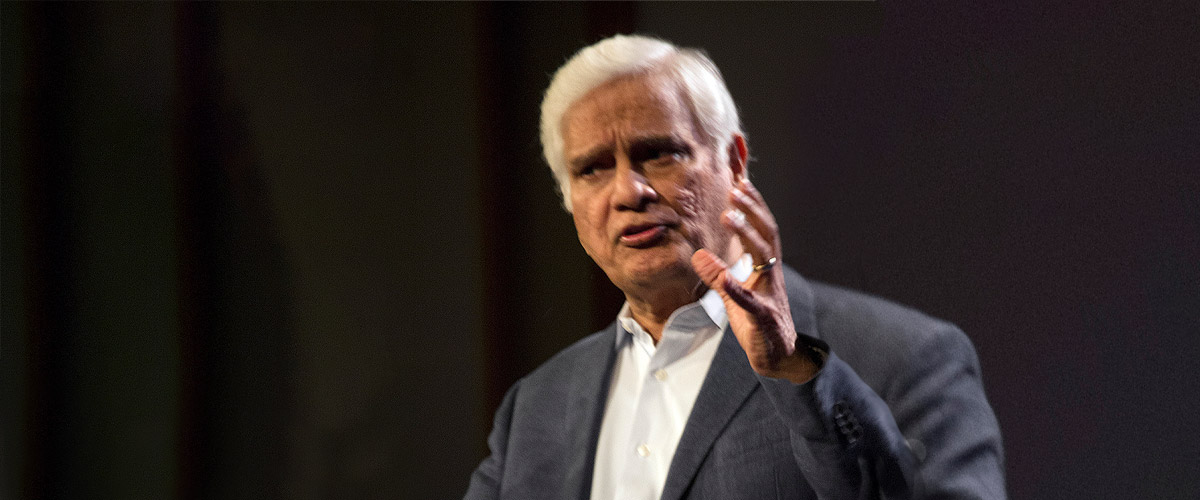I remember the first time I watched a YouTube sermon that changed my life. A man stood on stage at a large youth conference, and he was not happy. In fact, he began by verbalising his concern that most of the young people sitting in front of him (who had just been singing worship songs) would find themselves in hell one day because they were living such compromised Christianity. At one point he stated that our role models should not be pop stars and actors, but Jesus. As the arena filled with applause, he said, ‘I don’t know why you’re clapping. I’m talking about you.’ Ouch.
Christian Factions
One Corner
That sermon went viral, driven by the novelty of its shock factor and by the undeniable anointing of the preaching, and is now considered something of a classic; a modern addition to the pantheon of Jonathan Edwards and Charles Spurgeon. It was the type of soul-stirring, pick-a-side sermon that catalyzes a generation. But here’s the problem: for all its power, it was not a preaching template. The people at that conference may have needed to hear it, but there are also other ways of communicating God’s truth to people. I, however, didn’t realise that. For me, it wasn’t just a sermon – it was an approach. A methodology. I watched it, re-watched it, re-re-watched it, played it to my friends, and thought to myself, ‘This is what the world needs to hear.’ It took me a while to understand that people don’t always need to be scolded for forty-five minutes.
The Opposite Corner
Others might have felt the same impact from something on the other end of the spectrum. I remember watching powerful testimonies of people who’d hit the streets to preach the gospel, ready to see the power of God at work. They’d use phrases like, ‘We just want to release the love of God over people.’ They’ll tell perfectly legitimate and genuinely astonishing stories of healing, but the healing would be framed almost exclusively as God’s way of saying that He loved everyone. There didn’t seem to be much of an emphasis on conviction of sin and repentance. The approach was to positively affirm people, to heal bodies, to introduce people to Jesus, to shift atmospheres, and to celebrate the fingerprint of God placed on every life. If the man at the youth conference occupied one corner, these people seemed to be in the other one. The world needs to be blessed, not burdened, they seemed to be saying. Comforted, not condemned. Hugged, not harassed.
Media platforms can sometimes produce one-sided Christians and YouTube factions, but to be true disciples of Jesus, we must have the full picture.
For the person whose heart responds to this joyful, glass-half-full type of preaching and evangelism, the stern youth preacher looks legalistic, joyless, devoid of love. He looks like he’s getting it all wrong and just needs an encounter with the love of God. But for the person on the other side – the one sounding the alarm on the complete lack of holiness and reverence for God and Scripture – everything else seems like a watered down, liberal, hippyish quasi-gospel that cannot actually save people. Two different ways of thinking, two different approaches.
And so it goes: which camp are you in? Stern and uncompromising, circling the wagons against false doctrine? Or joyfully childlike, releasing the love of God into the atmosphere? Does the world need fundamentalism or just plain fun?
Gathering Allies
Media platforms can sometimes produce one-sided Christians and YouTube factions, but to be true disciples of Jesus, we must have the full picture. Media platforms can sometimes produce one-sided Christians and YouTube factions, but to be true disciples of Jesus, we must have the full picture. This is not a new phenomenon, but something’s changed over the last decade and a half: YouTube. Five billion videos are watched on the platform every day; three hundred hours of video are uploaded every sixty seconds. Think you’ll have trouble finding an opinion to confirm yours? Think you’ll have any difficulty finding like-minded teachers? You’d imagine that the incredibly wide spectrum of resources would cause us to find balance through exposure to different views, but it often does the opposite. It simply crystalises our own inbuilt slant, allowing us to gather those teachers who are saying what we want to hear. The sheer amount of teaching often doesn’t expand our view – it narrows it. And that’s a problem.
This is what I cannot stand about the age of YouTube partisanship – how it tries to push people into categories.
Of course, it’s mainly a problem because our generation seems to read the Bible far less than previous ones. The whole Bible contains the whole truth of God, and when we read and understand the whole thing, we can identify imbalances and overemphasised slants. And that might be the most disturbing aspect of today’s YouTube Christianity: you’re forced to pick your emphasis and then take it to the extreme. It seems you have to be one or the other.
This is what I cannot stand about the age of YouTube partisanship – how it tries to push people into categories. It creates a prejudice, a bias. It turns us into the itchy-eared followers who want to hear the message that suits us. Do you like to hear people point out all the compromise in others? Take a listen to this preacher and his friends – they call it like it is. Do you just want to love everybody without any of the negative stuff? Take a listen to these guys – they just want to give the world a hug.
Division Misrepresents Jesus
I don’t like it because it divides us. And because we’re taking one aspect of our God and turning it into the whole picture. It’s a misrepresentation of the whole will of God and a misrepresentation of our Lord Jesus. He wants to embrace the world, but is not afraid to speak honestly to it. He is set on enthusiastically bringing His kingdom onto this earth, but He is the King, and kings aren’t to be messed with. He heals bodies joyfully and without discrimination, but He wants the heart, and the heart must bow in humility and submission.
- It was Jesus who was described by his best friend as being ‘full of grace and truth‘ (John 1:14). Grace embraces, but truth divides. Grace comforts the heart, but truth troubles the soul.
- It was Jesus, in Mark 10:17-23, who made it incredibly hard for a rich man – a pretty nice rich man, in all honesty – to follow Him. No apologies. And it was the same Jesus who graciously invited Himself to the house of a traitorous, rich, white-collar criminal (Luke 19:1-10), picking him out of the multitudes who’d come to see Him.
- It was Jesus who delivered one of the most stinging public rebukes on ancient record (Matthew 23:1-36) before the same Jesus publicly likened His heart’s longing to that of a mother hen (Matthew 23:37).
- It was Jesus who told a crowd (without clarification) to eat His flesh and drink His blood (John 6:53-59), and then watched as they abandoned Him. And it was the same Jesus who made a meal and reached out to the man who had abandoned Him three times (John 21:15-19).
- It was Jesus who could intellectually confound fully-grown adults as a child (Luke 2:47) and the same Jesus who could joyfully leap about like a child as a fully-grown adult (Luke 10:21).
You see, Jesus occupies both camps. He comes with hugs and healing, but also with the threat of hell for rejecting Him. He gets angry – really angry, actually – and yet His eyes are filled with the fire of love. If we’re going to be discipled by YouTube, we’ll come out imbalanced. But if we’ll look to Jesus first, we’ll find that we don’t have to be one or the other – we can live in the fullness of who He is. And if we’re going to represent Him on this earth, we must hold to the full picture.
There is much helpful and insightful preaching from godly people on YouTube, and I don’t think we should avoid it. But I don’t like imbalances. I don’t like extremes. I don’t like picking camps. I pick Jesus, and I want Him to show me how to do this thing.











